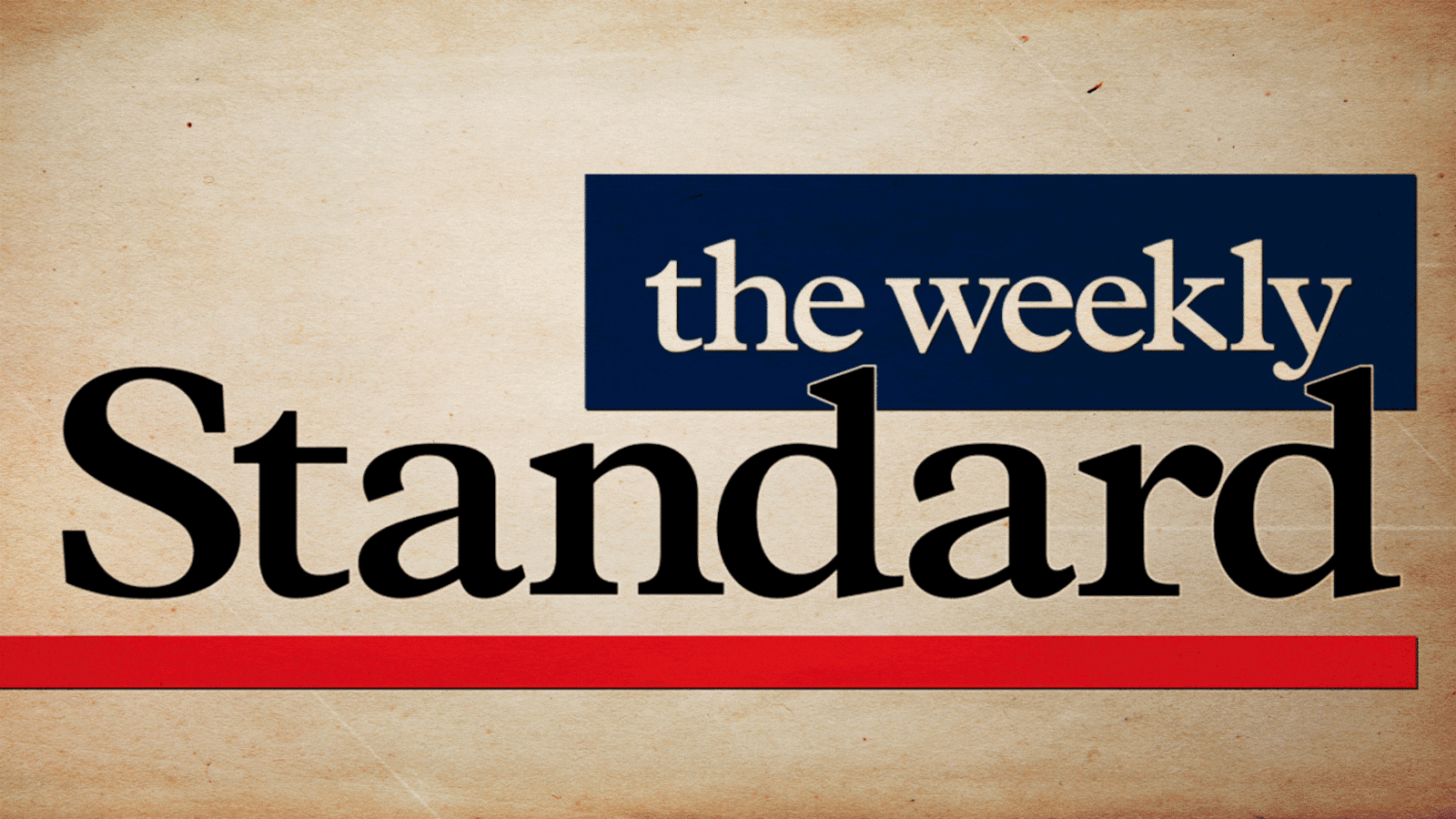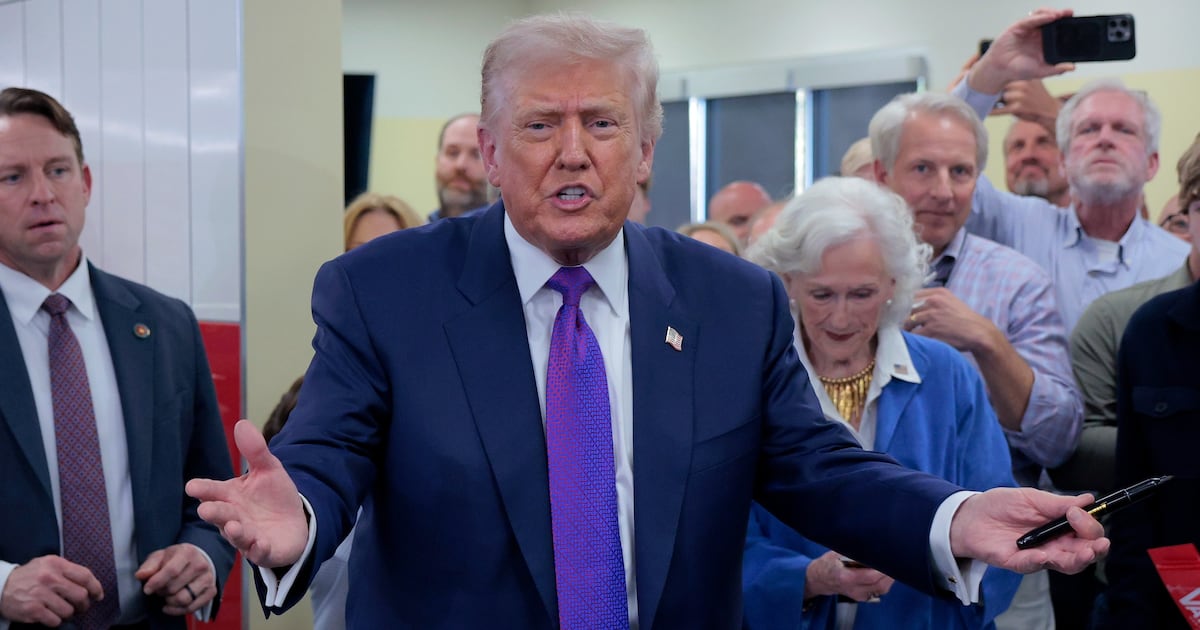A terse email from Richard Starr, a Senior Editor of The Weekly Standard, says it all: “Operations have been discontinued today” and the magazine has just published its last issue, after editor-in-chief Stephen Hayes met Ryan McKibben, the chairman of the its publisher. McKibben issued a press release giving boilerplate praise to how the magazine “has provided a valued and important perspective on political, literary and cultural issues of the day.” Why, then, shut it down?
The Clarity company is owned by billionaire Philip Anschutz, who also publishes The Washington Examiner, which just announced it is expanding its weekly magazine into a national publication. Ansuchtz has obviously decided that the more pro-Trump Examiner must be his one weekly conservative outlet, and he intends to take the Standard’s subscription list with him—even at the cost of killing the magazine itself.
In a note sent to his staff this morning, Hayes said, in a not so subtle reference to Fox News and its ilk, that “I’m proud that we’ve remained both conservative and independent, providing substantive reporting on analysis based on facts, logic and reason.”
Hayes is correct. The Standard, which began 23 years ago — and to which I have been a frequent contributor, perhaps more so than to any other outlet — has produced content and analysis simply not available in other weekly conservative publications, many of which come from the orbit of “movement conservatism” and whose writers and editors are part of existing conservative activist organizations.
As one of the Standard’s founders and its long-time film reviewer, Commentary editor-in-chief John Podhoretz writes, “There is no real reason we are witnessing the magazine’s demise other than deep pettiness and a personal desire for bureaucratic revenge on the part of a penny-ante Machiavellian who works for its parent company.”
The Standard’s loyalty was always to ideas, not merely to party—let alone of the person of Trump.
Compare that to National Review, which gained notoriety for devoting an entire issue to opposing Donald Trump’s candidacy only to quickly accommodate themselves to his presidency while allowing individual writers already there, such as David French and Jonah Goldberg, to write candidly when they oppose the President.
The Standard, on the other hand, has published strong editorials in opposition to Trump as an individual and to his administration’s agenda. It run a cover story by April Doss knocking apart the conspiracy theories entertained by Rep. Devin Nunes and many other pro-Trump conservatives. It spoke to the magazine’s integrity that Hayes recognized good investigative journalism and ran it even though Doss is described as “senior minority counsel [i.e., Democrat] for the Senate Select Committee on Intelligence and head of intelligence law at the National Security Agency.”
That was enough for the Trumpist website American Greatness to have Senior Contributor Julie Kelly argue that the Standard had “crossed the line from Trump foe to Obama defender,” and had “fallen into the abyss with vindictive Democrats who are hellbent on destroying the Trump presidency and taking the Republican Party down with it.” The Standard had, she concluded “abandoned any legitimate ties to the Right;” and had proved that its reporters and founders “are now protecting left-wing loyalists of a corrupt [Obama] administration.”
It is good to see that despite NR’s general editorial line, columnist Ramesh Ponnuru celebrated the friendly and respectful rivalry between the publications, calling The Standard “a reliable source of intelligent and felicitous writing.” By tomorrow, however, we will see the opposite from many hard-Right sites.
Looking back at the years of the Standard, there are literally too many articles one could highlight that showed how outstanding a magazine it was. The magazine had a strong diversity of opinion on many matters and included wide-ranging and well-done coverage of literary and cultural issues. There were history reviews by the esteemed historian Gordon Wood, columns by its former literary editor, Philip Terzian, and biting analysis, commentary and reporting by Andrew Ferguson and Matt Labash, brilliant essays by Joseph Epstein, and reviews by the great novelist and critic Cynthia Ozick. It had years of first-rate reporting from its current editor, Stephen Hayes. One must also single out the major role through the years played by Bill Kristol, who wrote many of its editorials and who has emerged recently as one of the most important of the firm never-Trumpers.
One can examine how divergent the views published within the Standard were on cultural issues by examining various articles about Bob Dylan. There was one by Michael Long, who wrote that Dylan was “ a man of integrity and character, a worker for beauty and truth and good.” On the opposite side, Andrew Ferguson wrote a scathing and hilarious piece about Dylan’s Christmas album, putting down those who praised it as being an example of how “Dylan worship is impervious to evidence.” Christopher Hitchens defended the singer-songwriter, and wrote that “A good number of his best songs were actually urging you to grow up, or at any rate to get real. Dylan respected his elders, most notably Woody Guthrie. And he was braced for disillusionment.” And there were several articles by Sean Curnyn, who is writing his own book about Dylan, and who explained in the magazine that “Many of his apparently secular songs of romantic love seem to resonate most strongly, and are arguably best understood, as songs of devotion to God.” Those who love and those who hate Dylan would all find substantiation for their own view of the artist in one of these assessments.
Originally seen during the administration of George W. Bush as a neo-con publication that had White House readership and hence influence, it emerged as the only independent conservative voice that could be counted on to produce fresh, insightful and must-read reports on scores of issues. Speaking as a reader, and as a contributor, I will sorely miss it.






